The 2021 NBA free-agent signing period is winding down, but deals are still getting done.
Among the most impactful early moves: Kyle Lowry joining the Miami Heat on a three-year deal via a sign-and-trade with the Toronto Raptors, Chris Paul re-signing with the Western Conference champion Phoenix Suns on a four-year deal, Lonzo Ball heading to the Chicago Bulls and Mike Conley returning to the Utah Jazz.
Other significant deals included Carmelo Anthony joining LeBron James and the Los Angeles Lakers, DeMar DeRozan heading to the Chicago Bulls on a sign-and-trade, Stephen Curry agreeing to a four-year extension with the Golden State Warriors and Kawhi Leonard returning to the LA Clippers with a new four-year deal.
What deals are getting done, and how are they shifting the balance of power around the league? Let's evaluate all the significant free-agent signings and trades to determine which moves make sense, which are bargains and which are head-scratchers.

SEPT. 27
Porter agrees to five-year extension with Denver
 Forward Michael Porter Jr. and the Denver Nuggets have agreed to a reported five-year max extension, worth up to $207 million
Forward Michael Porter Jr. and the Denver Nuggets have agreed to a reported five-year max extension, worth up to $207 million
As reported by ESPN's Adrian Wojnarowski on Monday, Porter joins Luka Doncic, Shai Gilgeous-Alexander and Trae Young as the fourth player from this year's class to get a five-year contract extension worth a minimum of 30% of the 2022-23 salary cap -- a projected $172 million.
In contrast to those deals, all completed shortly into free agency (or in Doncic's case, shortly after he returned from representing Slovenia in the Olympics), this one took much longer to complete as the two sides presumably negotiated over two key points, with each winning one of them. Porter got the potential to bump up his salary to 35% of the cap if he qualifies by making an All-NBA Team this season, while Denver won by avoiding a player option, signing Porter for a full five years.
Injury protection could also have been a factor in the negotiation. For as well as Porter has played since the NBA's restart to the 2019-20 season, emerging as the Nuggets' second option on offense after the loss of Jamal Murray to an ACL tear last season, there remains understandable concern about potential reinjury. Porter missed nearly all of his single season at Missouri, as well as his first year in the NBA due to a pair of back surgeries.
So long as Porter stays healthy, his development should merit a max salary, even if it inflates Denver's payroll. Extensions for starting forwards Porter and Aaron Gordon this month give the Nuggets more than $150 million in salary commitments for 2022-23, including an $8.2 million player option for JaMychal Green. Denver still has some options to reduce payroll -- I wouldn't be surprised if Will Barton, making $14.4 million on an expiring deal after 2022-23, ends up getting dealt -- but this represents a commitment to spending to keep the core together.
Although Barton's contract expires in the summer of 2023, the Nuggets' payroll will still likely increase going forward with MVP Nikola Jokic eligible next summer to sign a supermax extension starting at a projected $43.7 million, a full $10 million more than his 2022-23 salary. If Jokic indeed signs the supermax, Denver will have three players making more than $30 million in Jokic, Murray and Porter. The upside is that the Nuggets don't need to worry about losing any of their young stars in free agency any time soon, keeping together a group that looks like it has championship potential.

MORE OFFSEASON DEALS
SEPT. 14
Gordon gets four-year deal with Denver
 Nuggets agreed to a reported four-year, $92 million extension with forward Aaron Gordon
Nuggets agreed to a reported four-year, $92 million extension with forward Aaron Gordon
When the Nuggets added Gordon at the 2021 trade deadline, the most interesting aspect of the deal was whether they could keep him long-term. We now have our answer.
Gordon was headed into the final season of his contract and set to become an unrestricted free agent in the summer of 2022 -- the same time his Denver frontcourt mate Michael Porter Jr. is due for an extension.
The easiest way for the Nuggets to manage their payroll with Porter Jr. set to command a massive raise from his $5.3 million salary for 2021-22 would have been to let Gordon go. Instead, Denver has committed to keeping together the group that played at a high level between Gordon's debut and the loss of Jamal Murray to a season-ending ACL tear that will likely sideline him much of the upcoming regular season.
This extension for Gordon gives the Nuggets about $126 million in committed salary for 2022-23, depending on incentives, for nine players and their first-round pick. That would put Denver within $19 million of the projected luxury tax line before dealing with an extension for Porter, who would otherwise be a restricted free agent next summer.
Player options for JaMychal Green and Jeff Green offer the Nuggets a little wiggle room, but most likely they'll have to shed one of their high-priced players to avoid paying the luxury tax. Denver has all the way to the 2023 trade deadline to figure that out.
For now, the Nuggets ensure they retain Gordon through his prime. Because he entered the league so young, Gordon would have reached unrestricted free agency at age 26 with seven seasons of NBA experience. After struggling to find the right role with the Orlando Magic, Gordon fit seamlessly after the trade to Denver, embracing a role as a wing defender and high-percentage finisher on offense. He averaged just 11.3 PPG during the nine games he played with Murray but made an incredible 71% of his 2-point attempts in that span as the Nuggets won the first seven games he played.
Given the increasingly weak crop of free agents in the summer of 2022, Denver has to be thrilled not to sweat out Gordon getting a bigger offer elsewhere. The $88 million guaranteed in this deal, as reported by ESPN's Bobby Marks, is the most the Nuggets could offer starting with a 20% raise in Gordon's base salary to $19.7 million in 2022-23. He'll also carry over $1 million annual incentives, which are considered unlikely. (Per Marks, those incentives are tied to Gordon making either an All-Star, All-NBA or All-Defensive Team.)
From Gordon's standpoint, he gets the security of being under contract for a total of five years now. And he'll still have a chance at another big payday during the 2025 offseason, when he'll be age 29 and gets a player option on the final year of his deal.
Jordan returns to Los Angeles
After finalizing a buyout with the Detroit Pistons, DeAndre Jordan intends to sign with Los Angeles Lakers.
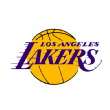 As compared to the other veterans the Lakers have signed for the minimum, Jordan is younger but appears to have less to offer at this stage of his career. Last season, the Brooklyn Nets were outscored by 1.9 points per 100 possessions with Jordan at center, the worst net rating for any Brooklyn player who saw more than 250 minutes of action according to NBA Advanced Stats.
As compared to the other veterans the Lakers have signed for the minimum, Jordan is younger but appears to have less to offer at this stage of his career. Last season, the Brooklyn Nets were outscored by 1.9 points per 100 possessions with Jordan at center, the worst net rating for any Brooklyn player who saw more than 250 minutes of action according to NBA Advanced Stats.
Jordan opened the season as the Nets' starting center and reclaimed the job after Jarrett Allen was sent to the Cleveland Cavaliers in the trade for James Harden, but late in the regular season Brooklyn finally acknowledged reality. After starting back-to-back games against the Milwaukee Bucks to defend Giannis Antetokounmpo in early May, Jordan saw just five minutes of action over the Nets' final four games and did not appear at all in the playoffs.
It's possible Jordan could fit better with the Lakers because they don't rely as heavily on switching as Brooklyn did last season. The Lakers switched just 11.5% of on-ball screens during the 2020-21 regular season, per Second Spectrum tracking, putting them in the NBA's bottom 10. Brooklyn's 39% switch rate was the league's highest.
Individually, Jordan switched 177 picks according to Second Spectrum, more than all three traditional Lakers centers last season (Andre Drummond, Marc Gasol and Montrezl Harrell) combined (142). Still, Jordan's game was showing signs of slippage long before the Nets embraced a switching-heavy defense. Although still one of the league's highest-percentage finishers and a prolific rebounder, Jordan is no longer an effective rim protector as he was during his prime with the LA Clippers.
If the Lakers view Jordan primarily as a quality teammate in the locker room and insurance for the similar Dwight Howard, he'll be a positive addition. If the Lakers are counting on him to play a large role, I'd rather have those minutes go to Gasol.
Millsap signs with Brooklyn
The Nets agreed to a deal with another former All Star, Paul Millsap.
 Getting Millsap for the veteran's minimum -- all the Nets have to offer free agents after using their taxpayer midlevel exception to sign Patty Mills -- is a coup that strengthens Brooklyn's bench. Millsap was the last difference-making free agent available to contenders.
Getting Millsap for the veteran's minimum -- all the Nets have to offer free agents after using their taxpayer midlevel exception to sign Patty Mills -- is a coup that strengthens Brooklyn's bench. Millsap was the last difference-making free agent available to contenders.
My one quibble with the Nets' offseason to date was letting versatile frontcourt reserve Jeff Green leave for the Denver Nuggets, where he essentially replaced Millsap, making this a challenge trade of sorts, via free agency. (Brooklyn got the better of it financially: the Nuggets paid Green $5 million for one year, more than three times a minimum salary on a one-year deal.)
Millsap is a different player. He's not quite as versatile defensively as Green, who played all over the front line, and his 3-point shooting (34% career) isn't nearly as strong as the 41% Green shot last season (though Green too is a 34% career shooter on 3s). By contrast, Millsap brings more scoring punch and disruptive defense. He more than doubled Green's rates of steals and blocks last season, a consistent trend over the course of both players' careers.
Adding Millsap gives Nets coach Steve Nash more options matching up in the frontcourt. Assuming Blake Griffin starts at center, Brooklyn will have Nicolas Claxton as a rim roller who can switch defensively, Millsap to supply shot creation and James Johnson (also signed for the veteran's minimum) as a stout individual defender against opposing frontcourt stars.
With so many choices, it's possible the best thing about the Nets signing Millsap is that they've kept him away from another contender. Still, increased veteran depth will be a plus as Brooklyn navigates a long season.
Capela gets two-year extension with Atlanta
The Hawks agreed to a reported two-year, $46 million extension for center Clint Capela
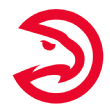 An extension for Capela is a surprise given both the lack of urgency for the Hawks -- Capela was two years from unrestricted free agency -- and the presence of 2020 lottery pick Onyeka Okongwu as a possible long-term replacement on the roster.
An extension for Capela is a surprise given both the lack of urgency for the Hawks -- Capela was two years from unrestricted free agency -- and the presence of 2020 lottery pick Onyeka Okongwu as a possible long-term replacement on the roster.
Over the next two years, Capela certainly looks like a better option than Okongwu, who got a late start due to injury and didn't really flash the defensive versatility that made him the No. 6 pick until a strong playoff run. Okongwu subsequently underwent shoulder surgery that will sideline him for the start of next season, setting back his development.
By contrast, Capela was a reliable defensive anchor for Atlanta and pick-and-roll partner for Trae Young and the Hawks' other ball handlers. Atlanta allowed 5.0 fewer points per 100 possessions with Capela on the court, per NBA Advanced Stats, and the 53% opponents shot against him in the restricted area ranked in the league's top 10 among high-volume rim protectors. Capela's rebounding was also a huge plus: He led the NBA in offensive and defensive rebound percentage.
I do wonder about the wisdom of committing to two additional seasons of Capela so early. The Hawks' roster is quickly getting more expensive with new long-term deals handed out to John Collins (five years, $125 million as a restricted free agent) and Young (a max extension worth a projected $173 million, which could increase if he makes an All-NBA team this year).
Capela's extension and Bogdan Bogdanovic's $18 million salary (player option) give Atlanta four players making at least $18 million in 2023-24 even before the Hawks consider extensions for their other young core players: Kevin Huerter (eligible for an extension now) and De'Andre Hunter and Cam Reddish (eligible next summer). Moving on from Capela in favor of Okongwu, who will be in the final season of his rookie contract in 2023-24 (an $8.1 million team option) was an obvious way for Atlanta to manage its payroll.
The Hawks might be betting that Capela will remain tradable at this salary, which is relatively high for a starting center in the modern NBA. Currently, just six full-time centers are making more in 2021-22 than Capela, who will get a larger raise in this extension than the typical year-to-year bump, although not quite the full possible $49 million including incentives.
At this point, there's no question Capela is worth the money. Whether that will still be true in 2024-25, when he's in his 30s, is more uncertain. As a result, I might have preferred waiting until next offseason to decide on a Capela extension. By then, the Hawks will know more about how well Capela will age and about how well Okongwu will develop.
Tacko Fall signs with Cleveland
The Cavaliers agreed to a reported one-year deal for center Tacko Fall
 After two seasons playing for the Boston Celtics on a two-way contract, 7-foot-5 Fall -- the league's tallest player and a fan favorite everywhere he goes -- is still looking to demonstrate he can make an impact on the court as he did at the University of Central Florida.
After two seasons playing for the Boston Celtics on a two-way contract, 7-foot-5 Fall -- the league's tallest player and a fan favorite everywhere he goes -- is still looking to demonstrate he can make an impact on the court as he did at the University of Central Florida.
Fall saw a bit more playing time last season (136 minutes) than he did as a rookie in 2019-20 (33) but still largely at the end of blowouts. More than half his playing time came in the fourth quarter. Fall has been a predictably high-percentage finisher (74% from the field) and a prolific rebounder and shot-blocker. The key question is whether he can hold up defending NBA pick-and-rolls at his size.
Alas, Cleveland might not have much more playing time to offer Fall if he makes the team. The Cavaliers re-signed starting center Jarrett Allen and drafted combo big man Evan Mobley No. 3 overall. The addition of Lauri Markkanen likely means Mobley will play regularly at center off the bench. Fall will compete against 2019 first-round pick Mfiondu Kabengele, who joined Cleveland late last season and played center alongside Mobley during the NBA Summer League, for the role of third center.
Rondo returns to L.A.
The Lakers agreed to a reported one-year, minimum deal with guard Rajon Rondo
 With his planned return to the Lakers after a one-year absence, Rondo joins Dwight Howard as the "getting the band back together" portion of their offseason. Yes, three other Lakers pickups (Trevor Ariza, Kent Bazemore and Wayne Ellington) previously played in Forum blue and gold, but in very different incarnations. (All three were teammates of the late Kobe Bryant.) Howard and Rondo were key supporting players when the current LeBron James-Anthony Davis core won the title less than a year ago.
With his planned return to the Lakers after a one-year absence, Rondo joins Dwight Howard as the "getting the band back together" portion of their offseason. Yes, three other Lakers pickups (Trevor Ariza, Kent Bazemore and Wayne Ellington) previously played in Forum blue and gold, but in very different incarnations. (All three were teammates of the late Kobe Bryant.) Howard and Rondo were key supporting players when the current LeBron James-Anthony Davis core won the title less than a year ago.
After the season, the Lakers let both Howard and Rondo go in favor of younger replacements -- Montrezl Harrell and Dennis Schroder, respectively. Now both Harrell and Schroder are gone and Howard and Rondo are back.
In one sense, the Lakers were surely right to let Rondo walk in free agency. Instead of paying him up to $16.5 million over two years, the deal Rondo got from the Atlanta Hawks, they're bringing him back at the veteran's minimum.
Given Rondo's age and regular-season track record, that contract always looked like a mistake, and it ended up being shed three times in barely nine months: first the Hawks sent Rondo to the LA Clippers at the trade deadline, then Rondo went from the Clippers to the Memphis Grizzlies earlier this month, and finally, the Grizzlies agreed to buy him out.
A minimum-salary deal is a more reasonable gamble on Rondo's ability to contribute at age 35. Wildly ineffective in Atlanta, he gave the Clippers good minutes off the bench after the deadline only to struggle in the playoffs and repeatedly fall out of the team's rotation.
The valuable version of "Playoff Rondo" we saw in the Lakers' 2020 title run was heavily contingent on efficient scoring we've never seen at any point in his career. Rondo's .553 true shooting percentage in the 2020 playoffs marked the only time he has ever topped .509 in the postseason.
At the same time, Rondo's off-the-charts ability to read the game paired well with LeBron, a partnership he never quite had with the Hawks or Clippers. It's possible Rondo could be revitalized with the Lakers. If not, much like Clippers coach Tyronn Lue did last season, Lakers coach Frank Vogel can simply take him out of the rotation.
Rozier lands four-year extension with Hornets
The Hornets agreed to a four-year, $97 million extension with guard Terry Rozier
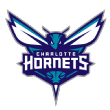 Rozier's extension is yet another indication that NBA free agency next summer could be relatively barren in terms of top talent. Like Julius Randle, who agreed to an extension with the New York Knicks earlier this month, Rozier gave up the opportunity to maximize his earnings by hitting free agency in exchange for the security of an extension coming off a career year.
Rozier's extension is yet another indication that NBA free agency next summer could be relatively barren in terms of top talent. Like Julius Randle, who agreed to an extension with the New York Knicks earlier this month, Rozier gave up the opportunity to maximize his earnings by hitting free agency in exchange for the security of an extension coming off a career year.
In Rozier's case, a contract I criticized at the time has turned into a great value for the Charlotte Hornets because of his development as a shooter. A 35% 3-point shooter over four seasons with the Boston Celtics before signing with Charlotte, Rozier has hit 40% of his long-distance attempts with the Hornets while pushing his volume to 8.6 attempts per 36 minutes last season. His 222 makes ranked fifth in the NBA.
The arrival of LaMelo Ball has taken the need for Rozier to be a playmaker off the table, freeing him to focus on scoring while still being able to defend opposing point guards depending on matchups. Rozier also shot a career-high 51% on 2-point attempts last season -- which might not be as sustainable as the 3-point accuracy -- producing above-average efficiency to go along with his above-average scoring volume.
Given his 20-point scoring and penchant for clutch shots (his 14 3s within the last five minutes of games where the score difference was fewer than five points ranked fourth in the league, per NBA Advanced Stats), Rozier had a chance to emerge as a coveted free agent next summer. Still, Rozier was probably wise to take an extension that will pay him an average of $24 million per season. Just two players have signed contracts with larger guarantees this summer: Jarrett Allen (five years, $100 million) and John Collins (five years, $125 million).
Extending Rozier takes Charlotte out of the running for sub-max cap space next summer. The Hornets will surely operate over the cap instead, particularly if they can complete an extension for backup forward Miles Bridges. Charlotte still has some financial flexibility with regards to the luxury tax because none of the three veterans the team has added this summer (Kelly Oubre Jr., Mason Plumlee and Ish Smith) have a fully guaranteed 2022-23 salary.
Pistons re-sign former dunk contest champ Diallo
The Pistons agreed to a two-year, $10.4 million deal with guard Hamidou Diallo
 Diallo was traded from the Oklahoma City Thunder to Detroit during the midst of a breakthrough third season that saw him average 11.6 PPG on career-best 48% shooting.
Diallo was traded from the Oklahoma City Thunder to Detroit during the midst of a breakthrough third season that saw him average 11.6 PPG on career-best 48% shooting.
The 2019 slam dunk champion harnessed that potential a bit more at age 22 (he's since turned 23), creating problems with his speed in transition and relentlessly attacking the basket in the half court. We even saw Diallo hit 34% of his 3s, although his poor foul shooting (64%) is a discouraging indicator about his potential for further development.
Re-signing Diallo seemed likely for the Pistons, and he ended up getting what looks like a much better deal than his $2.1 million qualifying offer by signing up for a second year. A short-term contract will put Diallo back into unrestricted free agency in 2023 at the latest, when he'll be 25 and just entering his prime.
After bringing back five of their own free agents and adding Trey Lyles and Kelly Olynyk, Detroit now has 16 players under guaranteed contract, one over the NBA's limit for the regular season. We'll see how Pistons GM Troy Weaver handles the roster crunch between now and then.
Details emerge of Hart's deal with New Orleans
The Pelicans agreed to a three-year, $38 million contract with guard Josh Hart
 This contract is all about the details, as reported Thursday by ESPN's Bobby Marks. A deal for significantly more than the non-taxpayer midlevel exception seemed generous for Hart, given no teams could currently make him an offer sheet larger than that mark. However, Marks explained that only Hart's first-year salary of $12 million is guaranteed in this atypical contract structure.
This contract is all about the details, as reported Thursday by ESPN's Bobby Marks. A deal for significantly more than the non-taxpayer midlevel exception seemed generous for Hart, given no teams could currently make him an offer sheet larger than that mark. However, Marks explained that only Hart's first-year salary of $12 million is guaranteed in this atypical contract structure.
For 2021-22, Hart is assured far more money than he would have gotten by taking his $5.2 million qualifying offer. In exchange, the Pelicans get the right to decide up until next June 25 whether to guarantee Hart's $12.96 million salary for 2022-23. The final year of the contract, 2023-24, is essentially a mutual option at the same value: Hart has up to June 24 to exercise his player option, which is non-guaranteed through the following day.
It's possible New Orleans got a little too cute here. Given Hart is 26, it's unlikely his value is going to change dramatically over the next year, so the 2022-23 non-guarantee mostly protects the Pelicans against only severe injury. And unless he signs an extension, Hart is likely not to see the final season of his contract because he'll be worth either more than his player option (and decline it) or less than his player option (and be waived).
Still, this structure gives the Pelicans a lot more flexibility than a straight three-year contract at the same salary. It also should work well for Hart because he gets more money now and can still sign a new contract if he does get waived either of the next two summers. If everything goes well for Hart and he opts out in the summer of 2023, he'll hit unrestricted free agency at age 28 for a bigger payday.
With Hart under contract, the Pelicans still have $21 million in room under the luxury-tax line. It's unclear how they might use it this summer. New Orleans has its non-taxpayer midlevel exception available, but the only free agent worth an offer like that is Lauri Markkanen of the Chicago Bulls, who is restricted. It's more plausible the Pelicans could land Markkanen in a sign-and-trade using the $17 million trade exception they generated earlier this month, but the Bulls are apparently seeking draft picks in return.
On top of all that, New Orleans now has 15 players under guaranteed contract and no obvious candidate to waive. So it's possible the Pelicans' offseason could be complete.
Schroder finds a home in Boston
The Celtics agreed to a reported one-year, $5.9 million contract with Dennis Schroder.

By contrast to those teams with more spending power, Boston does have a need for a playmaker after trading Kemba Walker for Al Horford earlier this offseason. The Celtics could have gotten by with Marcus Smart as a point guard along with second-year reserve Payton Pritchard, but adding Schroder allows Smart to play his natural shooting guard position and takes the playmaking load off him and Jayson Tatum.
First-year Boston head coach Ime Udoka will now have some interesting options with his starting lineup. The Celtics could go small with Tatum and Jaylen Brown at forward and Horford at center or play a big group with Horford alongside center Robert Williams III and Brown and Tatum on the wing. It wouldn't be surprising if that choice varied from game to game depending on matchups.
Schroder's shooting will still be an important variable in Boston. Pairing him with Smart, a 33% career 3-point shooter, could cramp the Celtics' spacing a bit even if Horford gives them a stretch option at center. Udoka might be wise to stagger the minutes of Schroder and Smart as much as possible.
I'm somewhat skeptical of Schroder's ability to rebuild his value in Boston. Looking at his career as a whole, 2019-20 looks much more like the outlier to last season. Optimistically, more realistic expectations for Schroder than his final season in Oklahoma City generated could make a repeat of last season look relatively better by comparison.
KD re-signs with Nets
The Nets agreed to a reported four-year, $198 million contract extension with Kevin Durant.

Like his former Golden State Warriors teammate and fellow MVP Stephen Curry, Durant had no financial incentive to wait and re-sign as a free agent next summer rather than extending now. As my ESPN colleague Bobby Marks explains, either way, both players were eligible for 5% raises in the first year of their new contracts even if that amount exceeds the typical maximum salary for players with 10-plus years of experience.
Curry and Durant are also affected by the NBA's over-38 rule, which affects contract length for players who would reach age 38 during the course of it. That would have prevented both from re-signing for the maximum five years next summer, meaning an extension locks in as many new years of salary as would have been possible in free agency.
The last factor here is that Durant apparently had no interest in exploring free agency after changing teams twice as an unrestricted free agent, from the Oklahoma City Thunder to the Warriors in 2016 and then from Golden State to Brooklyn in 2019. With friends Harden and Irving as teammates and a championship-caliber roster, Durant had no reason to look around.
Kawhi re-ups with Clippers
Kawhi Leonard has committed to return to the Clippers, with details of the deal to be finalized. Nicolas Batum also returns to LA, with Justise Winslow joining the Clips.

Although there never seemed to be much doubt Leonard would stay with the Clippers, how he structured his new contract remains an interesting question. Leonard decided to decline a $36 million player option and the possibility of extending his contract off of that, which would have guaranteed him the maximum number of years.
By opting out, Leonard was able to increase his 2021-22 salary to $39.3 million because he now has 10-plus years of experience and is eligible to make up to 35% of the cap as a maximum. Yet he still has a handful of choices he's deciding between, according to ESPN's Bobby Marks.
Because Leonard has played just two years for the Clippers, he is not eligible to sign a full five-year contract. Instead, he could sign a two-year deal with a player option that will enable him to become an unrestricted free agent next summer, when he can sign for five years. Alternatively, Leonard could re-sign for four years, the largest possible deal this summer.
For the Clippers, which option Leonard chooses surely isn't as important as making sure he's happy with the organization and his deal. No matter what, the Clippers were going to pay the luxury tax this season in the name of retaining key free agents.
In related moves, LA brought back Batum on a two-year deal with a player option for the second season using non-Bird rights and signed Winslow to a two-year deal. Winslow played just 37 games over the past two seasons due to injuries that included a season-ending hip injury he suffered during the NBA restart in the bubble in Orlando last year.
Jackson re-signs with Clippers
The Clippers agreed to a reported two-year, $22 million deal with guard Reggie Jackson.

Assuming the Clippers get a commitment from Kawhi Leonard -- and it's hard to imagine any other outcome right now -- this has been a successful offseason in terms of keeping the core of last season's conference finalists together.
The Clippers were limited in terms of what they could pay Jackson using early Bird rights and Nicolas Batum (non-Bird rights, which they used rather than dipping into their non-taxpayer midlevel exception) yet managed to re-sign both players. In Jackson's case, this deal represents the largest possible starting salary of $10.384 million, though he could have signed for up to four years.
It's tough to say how to value Jackson going forward because his 2021 postseason was so out of line with the rest of his recent career. Jackson averaged 17.8 PPG, more than he's managed in a regular season since 2015-16, his first full year with the Detroit Pistons. The 7.1 PPG increase from his regular-season average was third-highest for a player who played at least 15 playoff games since 1981, trailing Steve Nash in 2005 and Jamal Murray last season.
Even before the playoffs, however, Jackson had established himself as an indispensable member of the Clippers. Playing for the veterans minimum, he started 43 games during the regular season and proved capable of supplying more than enough spot-up shooting (43% on 3s, a career high) to have value when the Clippers ran their offense through Leonard and Paul George.
With Leonard sure to miss at least a substantial portion of the 2021-22 season after surgery to repair his partial ACL tear, getting Batum and Jackson back was crucial for the Clippers. That job is now done, and they await official word from Leonard.
Iguodala returns to the Bay
The Warriors agreed to sign Andre Iguodala to a one-year, veterans-minimum deal.

After a two-year interregnum spent with the Miami Heat (plus a half-season on the Memphis Grizzlies' roster after the Warriors dealt him to Memphis in the summer of 2019), Iguodala returns to Golden State in what will likely be a different role than he played as a vital sixth man the last go-round.
Iguodala will turn 38 during the season and wasn't particularly effective during his stop in Miami. By the end of his first run with the Warriors, Iguodala's regular-season value was limited, but he was a different player in the playoffs, starting a combined 27 games in the 2018 and 2019 postseasons. There was still some of that with the Heat. Iguodala increased his playing time and was more efficient in 2020 as he reached the Finals a sixth consecutive time with a new team. But by last season, when Iguodala logged 71 minutes in Miami's first-round sweep against the Milwaukee Bucks, he was largely a nonfactor.
Having added Otto Porter Jr. to complement incumbent reserves Damion Lee and Mychal Mulder and lottery picks Jonathan Kuminga and Moses Moody, Golden State is well stocked on the wings. It's not clear Iguodala will crack the rotation at all when everyone's healthy. If nothing else, having the respected Iguodala back in the Warriors' locker room as he enters his 17th season should be a positive.
Charlotte lands Oubre
The Hornets sign former Warriors wing Kelly Oubre Jr. to a two-year, $25 million deal

The Hornets found themselves in control of a limited board as the only team using cap space greater than the $9.5 million non-taxpayer midlevel. (The Oklahoma City Thunder could create substantially more cap space or choose to stay over the cap and retain substantial trade exceptions.) Rather than take a chance on one of the restricted free agents still available (Josh Hart or Lauri Markkanen), Charlotte decided to go with a sure thing in Oubre. At 25, Oubre is actually younger than Hart, but has six years of NBA experience because he went one-and-done at Kansas. In that regard, Oubre is a good fit with a team whose best players aside from Gordon Hayward are age 27 (Terry Rozier) and younger.
Now, the Hornets have to hope Oubre plays better than last season, when he slumped to 32% on 3s and 70% from the foul line with the Golden State Warriors. Oubre had previously shown progress as a shooter, approaching league average by making 34% of his 3s during nearly two seasons with the Phoenix Suns and had a three-year span where he hit 79% of his free throws.
The other concern is Oubre expressed a feeling that he's better than a reserve role late last season, when the prospect of Klay Thompson's return in 2021-22 figured to bump him there if he remained with the Warriors. Charlotte doesn't have a starting job open either, unless coach James Borrego decides to permanently move P.J. Washington to center and start an ultra-small frontcourt with Hayward and Oubre at forward.
Signing Oubre will take up nearly all of the Hornets' remaining cap space, with the remaining sliver likely earmarked for No. 37 pick JT Thor. Oubre and Thor would also give the Hornets 17 players under contract and presumably wrap up their offseason.
Williams is back with Atlanta
The Hawks agreed to a one-year, $5 million deal with guard Lou Williams
 After considering retirement when he was traded from the Clippers to his hometown Hawks at the deadline, as he later told reporters, Williams decided to report and was part of Atlanta's run to the conference finals. He came up with a huge performance in Game 4 against the Milwaukee Bucks, his first career playoff start, to help the Hawks win without star Trae Young.
After considering retirement when he was traded from the Clippers to his hometown Hawks at the deadline, as he later told reporters, Williams decided to report and was part of Atlanta's run to the conference finals. He came up with a huge performance in Game 4 against the Milwaukee Bucks, his first career playoff start, to help the Hawks win without star Trae Young.
It's less clear what Williams' role will be in 2021-22 after Atlanta added Delon Wright in a trade last week to back up Young. The two players could work well together, but the Hawks have plenty of options on the wing with Cam Reddish returning to join Bogdan Bogdanovic, Kevin Huerter and De'Andre Hunter in a potentially deep rotation.
As long as Williams is good with his playing time, another capable ball handler certainly can't hurt Atlanta. Having Williams back could also make the Hawks more comfortable trading Reddish or one of their other wings if they get the right offer.
Randle gets four-year extension with Knicks
New York agreed to a four-year, $117 million extension with forward Julius Randle
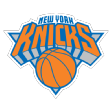 Because Randle hadn't yet developed into an All-Star when he signed his current three-year, $63 million contract -- one that wasn't fully guaranteed for this season until last week -- the Knicks were limited in what they could offer him in an extension.
Because Randle hadn't yet developed into an All-Star when he signed his current three-year, $63 million contract -- one that wasn't fully guaranteed for this season until last week -- the Knicks were limited in what they could offer him in an extension.
Based on the maximum possible 20% raise, this deal guarantees him a starting salary of $23.8 million in 2022-23 with an additional $3.6 million in bonuses for a four-year total of $106 million guaranteed and up to $16 million in bonuses, with $10.6 million of those (for reaching the playoffs and making the All-Star team) currently treated as likely. So Randle's likely four-year salary, based on the NBA's calculations, is $117 million.
Back in May, when Randle was getting MVP buzz (he finished eighth in the voting), that didn't look like it would be enough for New York to get a deal done. Had Randle waited out free agency next summer, he would have been eligible to sign for up to a projected $153 million over four years with another team and $207 million over five years from the Knicks.
The equation changed during the playoffs, when Randle was dreadful against the Atlanta Hawks. The Hawks were able to sit on Randle's dominant left hand and keep him out of the paint, forcing him into a series of contested jumpers off the dribble. Randle posted a 50% effective field goal percentage on such attempts during the regular season, per Second Spectrum, but made just 1-of-14 in New York's five-game series loss.
Realistically, Randle had to consider the possibility that his 2020-21 regular season would be tough to duplicate. Entering last year, he'd shot an effective 30% on pull-ups outside the paint during his career, according to Second Spectrum tracking, while attempting fewer of them in five full NBA seasons than he did in 2020-21 alone. If Randle played more like the player he'd been prior to 2020-21, it's possible no max deal would have been waiting for him from the Knicks or another team.
I probably still would have bet on Randle getting more than $106 million guaranteed on the open market, but this extension offers security in New York with a Knicks organization that has made Randle the centerpiece of its franchise. That was going to be hard to top in free agency.
For the Knicks, extending Randle completes a puzzle whose shape was hard to make out on Monday when the team spent lavishly to re-sign free agents Alec Burks, Nerlens Noel and Derrick Rose and add Evan Fournier. (As expected, all those contracts do have team options on the final season, making them look more favorable than the reported total value.)
Bringing in Kemba Walker after his buyout with the Oklahoma City Thunder is completed makes New York look far more capable of repeating the magical 2020-21 season, while a Randle extension swallows up the team's cap space next summer at a minimum.
If RJ Barrett gets the kind of big rookie extension his performance thus far implies, the Knicks might not have max-level cap space for a while. They've chosen the trade route over waiting for stars to bypass extensions in favor of free agency. I'm still a little skeptical how happy other teams will be to take back the contracts New York agreed to Monday in a trade, but the plan is now easier to see and far more reasonable than it appeared three days ago.
Green re-signs with Philly
Philadelphia agreed to a two-year, $20 million deal with Danny Green; agreed to a three-year, $15 million deal with Furkan Korkmaz; waived George Hill
 It's been a relatively quiet offseason thus far for the Eastern Conference's top seed in 2020-21. The Sixers have added only Andre Drummond and Georges Niang in free agency while re-signing two key contributors on the wing and moving on from Hill, whose $10 million salary was guaranteed for just $1.3 million.
It's been a relatively quiet offseason thus far for the Eastern Conference's top seed in 2020-21. The Sixers have added only Andre Drummond and Georges Niang in free agency while re-signing two key contributors on the wing and moving on from Hill, whose $10 million salary was guaranteed for just $1.3 million.
Getting back Green is important for Philadelphia. Had he left in free agency, the 76ers would have been constrained by a hard cap at the luxury-tax apron if they used the non-taxpayer midlevel exception to sign a replacement. Even at that price point, they weren't likely to find someone as useful in the short term as Green, who remains among the league's better 3-and-D options.
At 34, Green isn't quite the ace wing defender he was in his prime but remains good enough there to start -- particularly when he's making 40.5% of his 3s, as he did last season, a rebound after he slumped to 37% in 2019-20 with the champion Los Angeles Lakers. Because of Green's age, the length of this deal was almost as important as the money, and a two-year contract mitigates the downside substantially.
Korkmaz got a healthy raise after developing into a reliable contributor while playing the last two seasons for the veterans minimum. Having previously shot 32% from 3-point range in his first two campaigns in Philly, Korkmaz has jumped to 39% in more regular playing time over the last two. He still projects as a reserve going forward because of defensive limitations, but the price is totally fair.
Waiving Hill keeps the Sixers barely into the luxury tax with 12 guaranteed contracts plus non-guaranteed deals for forwards Paul Reed and Anthony Tolliver. Of course, the bigger question of a possible Ben Simmons deal looms. If Philadelphia is going to remake this roster after a disappointing playoff exit to the Atlanta Hawks, that's going to come via trade.
Dinwiddie heads to D.C.
Washington acquired Spencer Dinwiddie from Brooklyn in a multiteam deal

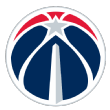 Give the Washington Wizards' front office credit for their creativity. Tacking this sign-and-trade on to the Russell Westbrook deal cost Washington a couple of second-round picks as well as a second-round swap, but it substantially expanded the team's spending power in free agency. Had the Wizards simply completed the deals as originally struck on draft night, they would have netted out a small trade exception (worth about $4.5 million) and had the $9.5 million non-taxpayer midlevel to spend in free agency.
Give the Washington Wizards' front office credit for their creativity. Tacking this sign-and-trade on to the Russell Westbrook deal cost Washington a couple of second-round picks as well as a second-round swap, but it substantially expanded the team's spending power in free agency. Had the Wizards simply completed the deals as originally struck on draft night, they would have netted out a small trade exception (worth about $4.5 million) and had the $9.5 million non-taxpayer midlevel to spend in free agency.
Instead, Washington found room to make Spencer Dinwiddie a three-year, $62 million offer. I like the timetable with Dinwiddie, who is 28 -- the same age as new backcourt-mate Bradley Beal. Dinwiddie is young enough to still have value to the Wizards if Beal ultimately leaves but also in his prime to help them compete now. Of course, this is all pending Dinwiddie's full recovery from a partial ACL tear in December that required season-ending surgery.
One key to this trade will be Dinwiddie's catch-and-shoot ability. Per Second Spectrum tracking, Dinwiddie has made 36% of his catch-and-shoot 3-point opportunities in his NBA career, just below the league average of 37%. It's on 3s off the dribble where Dinwiddie has struggled, shooting just 29% on attempts the league as a whole has made at a 32% clip.
Jazz trade for Paschall
Utah acquired Eric Paschall from Golden State for a protected second-round pick

 The Warriors were high on Paschall after his rookie season, when he started 26 games and averaged 14.0 MPG for an injury-battered Golden State team, earning All-Rookie First Team honors. Some of the bloom faded last year when the Warriors were trying to win. Paschall fell out of the rotation and became the odd player out when Golden State added Nemanja Bjelica at the veterans minimum. As a result, the Warriors essentially gave Paschall away for a pick that is surely top-55 protected.
The Warriors were high on Paschall after his rookie season, when he started 26 games and averaged 14.0 MPG for an injury-battered Golden State team, earning All-Rookie First Team honors. Some of the bloom faded last year when the Warriors were trying to win. Paschall fell out of the rotation and became the odd player out when Golden State added Nemanja Bjelica at the veterans minimum. As a result, the Warriors essentially gave Paschall away for a pick that is surely top-55 protected.
Paschall's fit in Utah is interesting because to the extent he did get on the court last season, it was as a small-ball center. Nearly 65% of his minutes came without a traditional 5 on the court, per my analysis of lineup data from NBA Advanced Stats. That's an option the Jazz have lacked in recent years and didn't find in free agency, where they signed veteran Hassan Whiteside to back up star center Rudy Gobert and Rudy Gay as a backup forward.
Still, the odds are against Paschall playing a meaningful role in Utah. Although he has a quickness advantage against centers, Paschall provides virtually no rim protection -- he blocked just seven shots in 695 minutes last season -- and his limited shooting range (30% career on 3s) is a weakness at power forward.
Oladipo returns to Miami on one-year deal
Miami agreed to a one-year, minimum deal with guard Victor Oladipo
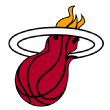 Staying in Miami seemed logical for Oladipo after the announcement that he underwent surgery in May to repair the quadriceps tendon in his right knee, originally injured in January 2019. The doctor who performed the surgery, Dr. Jonathan Glashow, told ESPN's Adrian Wojnarowski that Oladipo could be cleared for basketball activities in November, though there would surely be additional rehab before returning to game action.
Staying in Miami seemed logical for Oladipo after the announcement that he underwent surgery in May to repair the quadriceps tendon in his right knee, originally injured in January 2019. The doctor who performed the surgery, Dr. Jonathan Glashow, told ESPN's Adrian Wojnarowski that Oladipo could be cleared for basketball activities in November, though there would surely be additional rehab before returning to game action.
Given the uncertain nature of when Oladipo might play and how he might perform after two down seasons coming back from the original injury, this wasn't an ideal time for Oladipo to hit free agency. Staying with the Heat might mean taking a little less money than Oladipo could have potentially gotten if he was interested in a multiyear deal elsewhere, but it preserves Miami's full Bird rights on Oladipo. The team will be able to pay him any amount next summer.
Having reportedly wished to play for the Heat, Oladipo finally got there in a deal at this year's trade deadline only to see his season end four games later. Now, if Oladipo can get back on the court and look like the All-Star he was prior to his injury, there's a chance to make this a longer-term stop in Miami.
Hawks keep Collins with a new five-year deal
Atlanta agreed to a five-year, $125 million deal with forward John Collins
 For Collins, waiting on restricted free agency rather than signing a contract extension last fall paid off. Collins played well as a full-time power forward next to Clint Capela, particularly growing into that role in the playoffs as he was tasked with defending All-Stars Julius Randle and Ben Simmons during Atlanta's run to the conference finals. After that, there was no way the Hawks could let Collins get away.
For Collins, waiting on restricted free agency rather than signing a contract extension last fall paid off. Collins played well as a full-time power forward next to Clint Capela, particularly growing into that role in the playoffs as he was tasked with defending All-Stars Julius Randle and Ben Simmons during Atlanta's run to the conference finals. After that, there was no way the Hawks could let Collins get away.
That leverage didn't command Collins the maximum possible extension ($158 million over five years), but he did get an important concession in the way of a player option on the final season of this contract. That allows Collins to hit unrestricted free agency in the summer of 2025 at age 27 right in the middle of his prime.
From Atlanta's standpoint, raises for players on rookie contracts will eventually become an issue. Collins was the first of the Hawks' recent first-round picks to graduate to a big-money deal, but Trae Young's max extension will kick in during the 2022-23 season, with Kevin Huerter also eligible for an extension now.
Down the road, Atlanta will surely have to sacrifice some of the veteran depth that helped boost the team into the playoffs, with Danilo Gallinari (whose 2022-23 salary is $5 million guaranteed) a likely candidate and Capela a possible one if Onyeka Okongwu develops into a starting-caliber player. But those losses are necessary so that the Hawks' young core can continue to develop together.
Kemba set to join Knicks after Thunder buyout
Oklahoma City agreed to buy out guard Kemba Walker, who will join New York
 There's no question that adding Walker is a coup for New York. Barely two years ago, Walker was one of the marquee free agents on the market, agreeing to a max deal with the Celtics in the opening hours of free agency. Now the Knicks will be getting him at a steep discount with the buyout presumably supplying the bulk of his salary.
There's no question that adding Walker is a coup for New York. Barely two years ago, Walker was one of the marquee free agents on the market, agreeing to a max deal with the Celtics in the opening hours of free agency. Now the Knicks will be getting him at a steep discount with the buyout presumably supplying the bulk of his salary.
After agreeing to new contracts for returning players Alec Burks, Nerlens Noel and Derrick Rose and newcomer Evan Fournier on Monday, New York has a maximum of around $10 million in remaining cap space. (Getting to that number would require waiving point guard Luca Vildoza, who never played for the Knicks after signing late in the 2020-21 regular season.) That's a big pay cut from Walker's original $36 million salary this season.
Although Walker wasn't the same player in Boston he was during eight seasons with the Charlotte Hornets, dealing with recurring knee issues that forced him to miss 34 games as a Celtic, he's still an enormous upgrade over incumbent New York starter Elfrid Payton.
Robin Lopez has a magical day
Orlando agreed to a one-year, $5 million deal with center Robin Lopez
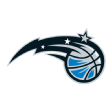 Like a prince in a Disney movie, Lopez was fated to eventually play in Orlando, Florida, where he and his twin brother, Brook, own a home in Walt Disney World's Golden Oak community. On off days and after practice, Lopez will be free to explore the Most Magical Place on Earth.
Like a prince in a Disney movie, Lopez was fated to eventually play in Orlando, Florida, where he and his twin brother, Brook, own a home in Walt Disney World's Golden Oak community. On off days and after practice, Lopez will be free to explore the Most Magical Place on Earth.
The appeal of signing Lopez is a little less clear for the Magic.
He's a reasonable value at $5 million after a solid season off the bench with the Washington Wizards, where Lopez improbably developed into a post-up threat at age 33. His 17.1 points per 36 minutes were a career high, as was Lopez's 63% shooting from the field -- many of those makes on rolling hooks he shoots with either hand.
Still, Orlando looked set at center with 2018 lottery picks Wendell Carter Jr. and Mo Bamba, and it will be interesting to see how first-year head coach Jamahl Mosley apportions minutes when all three players are healthy. The Magic need to figure out just what they have in Carter and Bamba, both of whom will be restricted free agents next summer.
Markieff Morris signs with Miami
Miami is finalizing a one-year deal with forward Markieff Morris
 Morris becomes the first outside free agent to sign on to play for the Heat, who have only the veterans minimum to offer barring a sign-and-trade. He has found a new home after a season-plus with the Los Angeles Lakers, highlighted by a strong run in the 2020 playoffs when Morris averaged 18.3 MPG -- which increased to 21.3 in the NBA Finals against Miami.
Morris becomes the first outside free agent to sign on to play for the Heat, who have only the veterans minimum to offer barring a sign-and-trade. He has found a new home after a season-plus with the Los Angeles Lakers, highlighted by a strong run in the 2020 playoffs when Morris averaged 18.3 MPG -- which increased to 21.3 in the NBA Finals against Miami.
That 2020 playoff run was powered by Morris shooting 42% on 3s, easily better than he has done in any full regular season. (His career high is 39% accuracy, also in 2019-20.) Last season, Morris slipped to 31% and fell out of the Lakers' rotation by season's end. When given an opportunity in the playoffs against the Phoenix Suns following Anthony Davis' injury, Morris shot 2-of-9 from the field with just one 3-pointer.
To Morris' credit, the Lakers' defense remained strong when he stepped into the starting lineup in place of the injured Davis during the regular season. He's physical in the paint but has the ability to defend on the perimeter, which should work well in the Heat's defensive scheme. Still, if Morris doesn't make shots, he'll be hard to keep on the court.
Whiteside lands with Jazz
Utah agreed to a deal with center Hassan Whiteside
 Much like Andre Drummond heading to Philadelphia to back up Joel Embiid, Whiteside is another former starter who put up big box-score stats but now will back up an All-Star center.
Much like Andre Drummond heading to Philadelphia to back up Joel Embiid, Whiteside is another former starter who put up big box-score stats but now will back up an All-Star center.
In Whiteside's case, the move to the bench started in the 2020 bubble, when Jusuf Nurkic reclaimed his starting job from Whiteside after returning from injury. After finding tepid interest in free agency last offseason, Whiteside started just four of his 36 games for the Sacramento Kings on a minimum-salary deal.
If Whiteside understands and accepts his role, there's reason to believe this could work. Whiteside has always been one of the league's best shot blockers when he's in position around the rim, something the Utah defense is built around doing with Gobert. More so than Drummond, Whiteside has a track record of his teams defending better with him on the court. Whiteside's plus-1.9 luck-adjusted defensive rating in the three-year RAPM model on NBAshotcharts.com ranks just outside the NBA's top 20. (Gobert is No. 2 in this stat at plus-3.5 points per 100 possessions as compared to an average defender.)
Offensively, Whiteside should also benefit from playing in the Jazz's spread pick-and-roll game. His on-ball screens yielded 1.01 points per play in 2019-20 in Portland, according to Second Spectrum tracking, good for 14th best among players who set at least 500 screens -- one spot behind Gobert.
Bulls land DeRozan on a sign-and-trade
Chicago agreed to trade Thaddeus Young, Al-Farouq Aminu and draft picks to San Antonio for DeMar DeRozan, who will join the Bulls on a three-year, $85 million deal
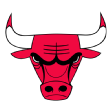
It's not debatable at all whether this trade makes sense in the specific context of the Bulls' current position. DeRozan is ill-fitting with Chicago's current core.
Let's consider first how DeRozan fits on offense, where he proved most valuable in San Antonio operating as a point forward. DeRozan displayed strong playmaking last season, averaging a career-high 6.9 assists per 36 minutes while handling the ball 37% of the time the Spurs spent on offense, according to analysis of Second Spectrum tracking data.
It's unlikely DeRozan will get to play on the ball that much with the Bulls. Incumbent All-Star Zach LaVine led Chicago by handling the ball 36% of the time he was on the court, while newcomer Lonzo Ball led the Pelicans with 33% time of possession. Add it up and that's 106% time of possession for the Bulls' three perimeter players.
Mills moving on to Brooklyn
Brooklyn agreed to a two-year, $12 million deal with guard Patty Mills
 Mills was an interesting target for Brooklyn's taxpayer midlevel exception, the team's only way to add free agents making more than the veteran's minimum. The appeal is clear: Mills is a cultural fit, having played with Nets GM Sean Marks in Portland during Marks' final season as a player and then in San Antonio while Marks was cutting his teeth in the Spurs front office. Mills is also a dangerous shooter, having knocked down 3.4 triples per 36 minutes last season -- good for 22nd in the NBA -- at a 37.5% clip.
Mills was an interesting target for Brooklyn's taxpayer midlevel exception, the team's only way to add free agents making more than the veteran's minimum. The appeal is clear: Mills is a cultural fit, having played with Nets GM Sean Marks in Portland during Marks' final season as a player and then in San Antonio while Marks was cutting his teeth in the Spurs front office. Mills is also a dangerous shooter, having knocked down 3.4 triples per 36 minutes last season -- good for 22nd in the NBA -- at a 37.5% clip.
The question is how well Mills will hold up defensively at age 32 and at 6-foot-1. With Mills and 6-foot-1 Jevon Carter, Brooklyn has loaded up on undersized guards playing behind 6-foot-2 Kyrie Irving. I don't think it's likely that Mills finishes games in the postseason, something another midlevel target -- perhaps re-signing Jeff Green -- could have potentially done.
At the same time, Green was the only reserve to play more than seven minutes in Game 7 of the Nets' loss to the eventual champion Milwaukee Bucks with Irving sidelined. Brooklyn might just need anybody that head coach Steve Nash trusts in a big moment. Mills, who won a championship in San Antonio, surely qualifies. Mills also figures to be a great innings-eater during the regular season, teaming with either Irving or James Harden when the other ballhandler is unavailable.
Curry is first ever to sign two $200 million-plus deals
Golden State agrees on a four-year, $215 million contract extension with Stephen Curry

Previously, Curry was eligible to sign an extension during the abbreviated 2020 offseason, and his decision to wait raised some eyebrows. Ultimately, it appears more about the ability to add an extra year by extending now as compared to last year. The four-year extension matches the longest deal Curry could have signed by waiting to hit unrestricted free agency next summer and guarantees him $215 million in new money.
The extension takes Curry through the 2025-26 season, which would be his 17th in the NBA at age 38. That's not quite a lifetime deal, but it surely covers Curry's remaining years as a superstar.
Curry did show in 2020-21 that his prime might go longer than we expected. He averaged a career-high 32.0 PPG and broke his own NBA record by making 5.3 3-pointers per game. With Green anchoring the defense and helping facilitate his heroics, Curry's dominant second-half run led the Warriors to an impressive 16-6 record over their last 22 games before they lost twice in the inaugural play-in tournament and fell short of the playoffs.
In a way, Curry's renaissance created a good problem for Golden State.
Melo joins LeBron and the Lakers
Los Angeles agreed to sign Carmelo Anthony on a one-year deal; added Kendrick Nunn and Malik Monk; re-signed Talen Horton-Tucker
 To get the most out of Melo, Lakers head coach Frank Vogel will want to pair him with the team's stars as much as possible. Not only will Anthony Davis and James help keep Anthony from being overexposed defensively, they'll also put him in more of a catch-and-shoot role on offense.
To get the most out of Melo, Lakers head coach Frank Vogel will want to pair him with the team's stars as much as possible. Not only will Anthony Davis and James help keep Anthony from being overexposed defensively, they'll also put him in more of a catch-and-shoot role on offense.
Thanks to his 3-point shooting, Melo posted a 57% effective field goal percentage (eFG, which accounts for the added value of 3s) on shots with fewer than two seconds of touch time, according to NBA Advanced Stats data. With more than two seconds of touch time -- frequently on isolation plays -- that dropped to 47%.
Bucks retain Portis; add Hood, Ojeleye
Milwaukee agreed to a one-year deal with Rodney Hood; agreed to a two-year, $9 million deal with Bobby Portis (Day 1); agreed to a one-year deal with Semi Ojeleye (Day 1)
 The defending champs went 1-for-2 on retaining key free agents from their playoff rotation.
The defending champs went 1-for-2 on retaining key free agents from their playoff rotation.
Finals hero Portis is back and on an especially favorable deal for the Bucks: He agreed to take a two-year deal at the most Milwaukee could pay him using non-Bird rights ($9.5 million), leaving their taxpayer midlevel exception freed up. The deal could work out well for Portis: He got a player option on the second season, allowing him to return to free agency next summer when the Bucks will be able to offer more using early Bird rights.
Alas, P.J. Tucker left for the rival Miami Heat on a two-year, $15 million deal. Milwaukee could have paid more using full Bird rights on Tucker, but the luxury tax was surely a concern. The Bucks are already more than $10 million over the tax line with a handful of contracts on the books that aren't fully guaranteed. Bringing back Tucker at the same rate would've cost them approximately $18 million more in taxes than signing a player for the minimum.
Additionally, it's possible Milwaukee feels Tucker is replaceable. As valuable as he was defensively in the playoffs, Tucker was a non-factor on offense, averaging just 5.2 points per 36 minutes and shooting 32% on 3s. It's also worth remembering Donte DiVincenzo is expected back to fill the starting spot Tucker occupied after DiVincenzo's playoffs-ending injury.
The Bucks added a Tucker-like player in Semi Ojeleye, a versatile defender who's effective 1-on-1 but limited offensively. Ojeleye has actually shot better on 3s the past two seasons (37%) than Tucker (35%), though he doesn't bring anywhere near the level of toughness and veteran savvy Tucker offered.
Milwaukee is also taking a flyer on Hood, waived by the Toronto Raptors yesterday. I'm skeptical given how ineffective Hood was coming back from an Achilles rupture last season. His accuracy on both 2s (40%) and 3s (30%) was the worst of his career, and Hood's defensive shortcomings were exacerbated after the injury. My expectation is Hood won't make it to the trade deadline with the Bucks.
Blazers retain Powell; add Snell, Zeller
Portland agreed to a one-year deal with forward Tony Snell; agreed to a five-year, $90 million deal with guard Norman Powell (Day 1); agreed to a one-year deal with center Cody Zeller (Day 1)
 Having acquired Powell at the trade deadline, the Blazers were always heavy favorites to retain him -- particularly given how effective their starting lineup with him at small forward was the rest of the regular season. The bigger cost for Portland may be more in years than dollars. Because Powell is 28, a five-year deal will take him well into his 30s.
Having acquired Powell at the trade deadline, the Blazers were always heavy favorites to retain him -- particularly given how effective their starting lineup with him at small forward was the rest of the regular season. The bigger cost for Portland may be more in years than dollars. Because Powell is 28, a five-year deal will take him well into his 30s.
The tradeoff for the Blazers is keeping the starting point of the deal reasonable. Assuming maximum 8% raises, Powell will make $15.5 million in 2021-22, maybe a little on the low side for a player who has emerged as an above-average starter on the wing.
Despite that savings, Portland will start the season in the luxury tax barring a trade because of pay raises for both Damian Lillard and CJ McCollum on extensions that kick in this year. That may prevent the Blazers from using their taxpayer midlevel exception to add to their bench, requiring the Portland front office to find bargains.
Snell and Zeller both look like reasonable candidates. Snell started 23 games for the Atlanta Hawks last season while hitting 57% of his 3-point attempts, best among players with at least 100 attempts. Snell also hasn't missed a free throw since March 2019, a streak of 47 consecutive makes. Because his game is limited, Snell has been a bit player in the playoffs, but that's fine as long as Portland can keep him alongside either Lillard or McCollum during the regular season.
As for Zeller, he's remained effective when he's been on the court in recent seasons. Unfortunately, that doesn't happen enough. Zeller missed 19 games due to injury last season and has averaged a little more than 18 games missed over the past three seasons. Given injury issues for starting center Jusuf Nurkic, the Blazers still need another reliable option in the middle. Nonetheless, Zeller was a good get as a backup who offers far more scheme versatility on defense than predecessor Enes Kanter.
Drummond switches coasts, heads to Philly
Philadelphia agreed to a one-year, minimum deal with center Andre Drummond
 Well, this will be interesting. Coming off a disappointing postseason with the Los Angeles Lakers, which ended in a DNP-CD for the deciding Game 6 of the Lakers' opening-round loss to the Phoenix Suns, Drummond will try to rebuild his value backing up perhaps his greatest tormentor: Joel Embiid.
Well, this will be interesting. Coming off a disappointing postseason with the Los Angeles Lakers, which ended in a DNP-CD for the deciding Game 6 of the Lakers' opening-round loss to the Phoenix Suns, Drummond will try to rebuild his value backing up perhaps his greatest tormentor: Joel Embiid.
Battles between Drummond and Embiid, both All-Stars in 2018 (Drummond's second appearance), have resulted in a steady stream of Embiid trash talk. After one game later that year, Embiid told reporters, "I think I own a lot of real estate in his head."
We appear to have hit the point of overcorrection to Drummond's value. He's certainly overqualified for a role backing up Embiid, despite the opportunity to start on a regular basis it will likely afford. (Embiid missed 21 games last season between rest and minor injuries.) The appeal of getting a former All-Star at the veterans minimum to Sixers president Daryl Morey is obvious.
That noted, Drummond could be a tricky fit for head coach Doc Rivers on the court if Ben Simmons isn't traded this offseason. Rivers found it difficult last season to play Embiid's former backup, Dwight Howard, with Simmons because of his non-shooting. Drummond is no better in this regard and even less suited than Howard to play the spread pick-and-roll game in which Simmons has excelled with less talented centers at times.
Raptors retain Trent Jr., add Dekker
Toronto agreed to sign Sam Dekker; agreed to a three-year, $54 million deal with Gary Trent Jr. (Day 1)
 In March, the Raptors sent Norman Powell to the Portland Trail Blazers for Trent. The two wings finished 14th (Trent) and 15th (Powell) in my three-year statistical projections for free agents. They then both signed contracts averaging $18 million per season. Clearly there are some broad similarities here.
In March, the Raptors sent Norman Powell to the Portland Trail Blazers for Trent. The two wings finished 14th (Trent) and 15th (Powell) in my three-year statistical projections for free agents. They then both signed contracts averaging $18 million per season. Clearly there are some broad similarities here.
Typically, a longer contract is to the player's benefit. That certainly seems to be the case with Powell, who's now guaranteed money through age 33. Trent could be an exception. He was drafted at 19 and is still just 22, meaning a three-year deal puts him back on the market as an unusually young unrestricted free agent at 25. If Trent continues to broaden out his game beyond his plus 3-point shooting (39% career), he could be in for an even bigger payday in the summer of 2024.
Dekker is heading back to the NBA after two seasons spent in Europe playing for Lokomotiv Kuban in 2019-20 and Turk Telekom in 2020-21. Most notably, he shot 45% from 3-point range last season while ranking sixth in the Turkish BSL in my WARP metric. It remains to be seen how real that improvement on 126 shots was, as Dekker shot 30% from the shorter FIBA line in 2019-20, but that would address Dekker's biggest weakness. He made just 29% of his 3s in four NBA seasons.
Jazz add Rudy Gay
Utah agreed to a two-year deal with forward Rudy Gay

After shedding salary by trading Derrick Favors to the Oklahoma City Thunder last week, the Jazz reinvested some of that money into using their taxpayer midlevel exception to sign Gay to a two-year contract with a player option for the second season.
Gay isn't quite the ideal pickup for Utah because he doesn't really have the ability to slide to center in smaller lineups. Still, he brings additional scoring punch to a Jazz bench that could be too dependent on Sixth Man Award winner Jordan Clarkson for shot creation at times. Gay is also an upgrade defensively on Georges Niang, who proved difficult to play in the playoffs.
Credit new Utah ownership, led by Ryan and Ashley Smith, for their willingness to spend well into the luxury tax. Even with the Favors trade, the Jazz are still looking at a tax bill north of $30 million to start the season. Barring moves to reduce that bill during the season, using the midlevel on Gay that will add nearly $12 million to that total, a significant commitment.
Brown back to Brooklyn
Brooklyn agreed to sign Bruce Brown to a one-year qualifying offer; agreed to a one-year deal with James Johnson
 The Nets continued filling out their bench on Day 2 of free agency, assuring Brown's return and adding Johnson. Brown accepted the one-year, $4.7 million qualifying offer the Nets tendered to make him a restricted free agent. That represents a huge raise after Brown played his first three seasons for the minimum and will give him a chance to test unrestricted free agency next summer.
The Nets continued filling out their bench on Day 2 of free agency, assuring Brown's return and adding Johnson. Brown accepted the one-year, $4.7 million qualifying offer the Nets tendered to make him a restricted free agent. That represents a huge raise after Brown played his first three seasons for the minimum and will give him a chance to test unrestricted free agency next summer.
Johnson presumably fills the Jeff Green role in Brooklyn and there's broad similarity in their career paths. Like Green, Johnson was considered overpaid on a big deal (four years, $60 million) but now should be an excellent value. His combination of strength and athleticism makes Johnson a good match for stars Giannis Antetokounmpo and LeBron James.
The downside is that although Johnson is a strong playmaker for a combo forward, he doesn't offer much shooting (30% career from 3-point range, 26% last season). As a result, his role for the Nets might be more situational than every-night rotation piece.
Bjelica to the Warriors

Golden State agreed to a one-year deal with forward Nemanja Bjelica
It feels like Bjelica got lost in free agency after a disjointed 2020-21 campaign. After starting 67 games for the Sacramento Kings the previous season, Bjelica was an odd man out as the Kings looked to develop Marvin Bagley III as a power forward. He played just 26 games prior to a deadline trade that sent him to the Miami Heat. Miami curiously sought to use Bjelica as a small ball 5, asking him to switch defensively -- something he's good but not great at doing. Bjelica fell out of the rotation and played only in blowouts during the playoffs.
Heading back to Northern California with the Warriors, Bjelica has a chance to play a more appropriate role. Golden State may still ask him to play some 5, but it would likely come with either Draymond Green or Juan Toscano-Anderson alongside him to offer some rim protection. The value looks good for the Warriors, who have done well so far shopping on the cheap end because of their tax situation.
Nuggets sign Green, retain key free agents
Denver agreed to a two-year, $32 million deal with Will Barton; agreed to a two-year, $17 million deal with JaMychal Green; agreed to a two-year, $10 million deal with Jeff Green.
 The Nuggets are running back the team that beat the Portland Trail Blazers in the opening round of the playoffs before running out of steam in a sweep against the Phoenix Suns -- with one small tweak.
The Nuggets are running back the team that beat the Portland Trail Blazers in the opening round of the playoffs before running out of steam in a sweep against the Phoenix Suns -- with one small tweak.
After Barton declined a $14.7 million player option, he got slightly more from the Nuggets to return as a starter on the wing. Denver can still feel good about getting Barton at less than the $18 million going rate for other wing starters. Bringing back JaMychal Green likely utilizes his non-Bird rights for a modest raise (up to 20%) on the $7.2 million he made with the Nuggets last season.
Aside from first-round pick Nah'Shon "Bones" Hyland, the lone newcomer is Jeff Green, who replaces Nuggets stalwart Paul Millsap, an unrestricted free agent whose likely salary would now push Denver into the luxury tax.
As compared to Millsap, Green offers a little more defensive versatility. He was also the better shooter last season, hitting a career-best 41% of his 3s. The Nuggets should expect some regression there. Despite those skills, Millsap rated as more valuable overall because of his superior rebounding, greater offensive activity and better steal/block rates. Green has earned a raise from the minimum contracts he's played on the past four seasons, but he still looks like a downgrade from Millsap.
Mavericks retain core pieces, add two
Dallas agreed to a four-year, $74 million deal with Tim Hardaway Jr.; agreed to a deal with Reggie Bullock; agreed to a two-year deal with Sterling Brown; agreed to a one-year deal with Boban Marjanovic
 With Kyle Lowry heading to Miami via sign-and-trade, the Mavericks decided to run the core of last year's team back with some upgrades on the edges in terms of shooting. Based on the reported salaries for these signings, Dallas will likely be better off staying over the cap and using the non-taxpayer midlevel exception to sign Bullock and the biannual exception for Brown. That allows the Mavericks to keep the $10.9 million trade exception created when they dealt Josh Richardson to the Boston Celtics last week.
With Kyle Lowry heading to Miami via sign-and-trade, the Mavericks decided to run the core of last year's team back with some upgrades on the edges in terms of shooting. Based on the reported salaries for these signings, Dallas will likely be better off staying over the cap and using the non-taxpayer midlevel exception to sign Bullock and the biannual exception for Brown. That allows the Mavericks to keep the $10.9 million trade exception created when they dealt Josh Richardson to the Boston Celtics last week.
Hardaway's contract is in line with those signed by other starting wings, including Evan Fournier (four years, $78 million), Norman Powell and Duncan Robinson (both five years, $90 million). Technically, Hardaway didn't qualify as a starting wing last season, coming off the bench in 39 of his 70 games to finish fourth in Sixth Man Award voting, but he averaged a similar number of MPG to when he started the previous campaign.
Bullock looks like an upgrade on Richardson. In hindsight, the Mavericks didn't need to trade away Richardson to complete their offseason moves. Still, Bullock's arrival might have pushed Richardson further out of the rotation, so it is probably better for Dallas to have the trade exception. Bullock is a far better shooter (39% career on 3s, 41% in 2020-21) who offers a little more size and strength defensively.
The Mavericks also prioritized shooting with Brown, who made 42% of his 3s last season playing for the Houston Rockets at the minimum salary. Brown wasn't as accurate during three seasons with the Milwaukee Bucks (34.5%), so some regression may be in order. At the price, Brown still looks useful.
Lastly, Dallas brought back beloved teammate Boban Marjanovic on a one-year deal that utilizes non-Bird rights and can pay him a maximum 120% of his previous $3.5 million salary. Team and player apparently preferred the shorter-term deal to one using Marjanovic's early Bird rights, which would have had to be a minimum of two years excluding options. This way, the Mavericks will have full Bird rights on Marjanovic next summer.
The Dallas center rotation is looking crowded with Marjanovic and Willie Cauley-Stein (team option exercised) returning alongside Dwight Powell and newcomer Moses Brown. The Mavericks could still look to trade from their center depth as they complete their roster.
Olynyk headed to Motown
Detroit agreed to a three-year, $37 million deal with Kelly Olynyk
 After agreeing to deal veteran backup big man Mason Plumlee to the Charlotte Hornets last week -- a move that cost them going from the No. 37 pick of the second round to No. 57 -- the Pistons put their newfound cap space to use, signing...another veteran backup big man.
After agreeing to deal veteran backup big man Mason Plumlee to the Charlotte Hornets last week -- a move that cost them going from the No. 37 pick of the second round to No. 57 -- the Pistons put their newfound cap space to use, signing...another veteran backup big man.
The good news is Olynyk was legitimately awesome over the two months he played for the Houston Rockets after being sent there by the Miami Heat in exchange for Victor Oladipo. On a short-handed Rockets team, Olynyk used a career-high 23% of the team's plays, shot 39% on 3s and posted a .674 true shooting percentage (which would also have been a career high, as would his assist rate).
Whether Olynyk can keep that up is an open question. He'd had a disappointing first four months of the season with the Heat and turned 30 in that run, meaning this isn't exactly a case of a young player developing over time. Olynyk's age is the main issue with this signing. He doesn't fit the timetable of Detroit's young core and I would have preferred to see the Pistons target a playmaker who could grow with their budding talent.
On the court, Olynyk should be a nice fit next to Isaiah Stewart in the frontcourt in addition to potentially playing some minutes backing him up. Olynyk offers floor spacing and playmaking while Stewart can handle the dirty work on defense.
Pacers sign McConnell, Craig
Indiana agreed to a four-year, $35.2 million deal with T.J. McConnell; agreed to a two-year, $10 million deal with Torrey Craig
 Of the two Pacers free agents who were key reserves last season, they lost Doug McDermott to a big offer from the San Antonio Spurs (three years, $42 million) but were able to retain McConnell. While the salary is reasonable for someone who played a career-high 26 MPG last season, the length of McConnell's deal might be a concern. He arrived in the NBA at age 23 and is already 29, so this deal takes him well into his 30s.
Of the two Pacers free agents who were key reserves last season, they lost Doug McDermott to a big offer from the San Antonio Spurs (three years, $42 million) but were able to retain McConnell. While the salary is reasonable for someone who played a career-high 26 MPG last season, the length of McConnell's deal might be a concern. He arrived in the NBA at age 23 and is already 29, so this deal takes him well into his 30s.
To fill McDermott's spot in the frontcourt, the Pacers signed Craig to a deal that fits into the taxpayer midlevel exception so that they're not technically hard-capped. (In practice, Indiana isn't a candidate to pay the tax. The Pacers last did so in 2004-05, per Spotrac.com.) Indiana will still have a crowd at forward with T.J. Warren returning from injury, but Craig's physical defense offers a different look than the more lithe Justin Holiday.
With 15 players now under contract, the Pacers could be done for the offseason if they're planning to guarantee the contracts of Oshae Brissett and Kelan Martin.
Rockets add Theis at center
Houston agreed to a four-year, $36 million deal with Daniel Theis
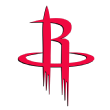 Theis has long been a target for the Rockets, who reportedly tried to make a run at him after dealing Clint Capela ahead of the 2019 trade deadline. Theis fits Houston's scheme in terms of his ability to switch and stretch the floor as an occasional 3-point shooter (33.5% career). He could fill a similar role to the one Kelly Olynyk successfully played for the Rockets after last season's deadline.
Theis has long been a target for the Rockets, who reportedly tried to make a run at him after dealing Clint Capela ahead of the 2019 trade deadline. Theis fits Houston's scheme in terms of his ability to switch and stretch the floor as an occasional 3-point shooter (33.5% career). He could fill a similar role to the one Kelly Olynyk successfully played for the Rockets after last season's deadline.
That said, Theis made more sense for a contending Rockets team than the current rebuilding version. He turned 29 in April and will be 33 at the end of a four-year deal. Houston could use a veteran caddie to complement Christian Wood and the young European bigs drafted in this year's first round (Usman Garuba and Alperen Sengun). It's just not clear that player needed to be on such a long contract, though Theis may retain trade value if and when Garuba and Sengun are ready to graduate to bigger roles.
A cap note worth watching here: If the $36 million reported value was rounded up from $35.6 million, the Rockets could use the trade exception created sending Victor Oladipo to the Miami Heat to acquire Theis from the Chicago Bulls in a sign-and-trade deal. That would free up Houston's non-taxpayer midlevel exception for possible in-season use while allowing the Bulls to complete a double sign-and-trade for Alex Caruso, doing the same thing.
Wizards set to replace Westbrook with Dinwiddie
Washington is nearing a deal to sign guard Spencer Dinwiddie

Credit Nate Duncan of the "Dunc'd On Basketball NBA Podcast" for selling me on Dinwiddie. Duncan and co-host Danny Leroux have been high on him as a free agent, and I was more skeptical because of his questionable shooting. But they're correct that this is partially a function of the on-ball role Dinwiddie had played in Brooklyn.
Per Second Spectrum tracking, Dinwiddie has made 36% of his catch-and-shoot 3-point opportunities in his NBA career, just below the league average of 37%. It's on 3s off the dribble where Dinwiddie has struggled, shooting just 29% on attempts the league as a whole has made at a 32% clip.
Heading to Washington, Dinwiddie won't entirely abandon an on-ball role. He'll be called on to start at point guard, filling the hole left by last week's trade sending Russell Westbrook to the Los Angeles Lakers. Still, with Bradley Beal alongside him in the backcourt, Dinwiddie will have more playmaking support than he had for much of his time in Brooklyn. When Beal is operating with the ball, Dinwiddie's average-ish shooting will be a huge upgrade from Westbrook's.
I also like the timetable with Dinwiddie, who is 28 -- the same age as Beal. Dinwiddie is young enough to still have value to the Wizards if Beal ultimately leaves but also in his prime to help them compete now. Of course, this is all pending Dinwiddie's full recovery from a partial ACL tear in December that required season-ending surgery.
It remains to be seen how Washington can complete a deal for Dinwiddie to offer him more than the $9.5 million non-taxpayer midlevel exception. However this deal comes together, it looks like another step for the Wizards toward more sustainability in contending for a playoff spot in 2021-22 and perhaps beyond.
Allen gets $100 million from Cavs
Cleveland agreed to sign center Jarrett Allen to a five-year, $100 million deal

The prospect of a contract like this is why I wasn't as high on the Cavaliers' part of the four-team trade that landed James Harden in Brooklyn as the general consensus. Cleveland gave up a first-round pick (Milwaukee's in 2022) and took on forward Taurean Prince in order to get Allen.
Now, the Cavaliers had to give up a second-round pick to turn Prince into Ricky Rubio on draft night and Allen has commanded $20 million per year as a restricted free agent. Few centers are worth that kind of investment in the modern game.
This is no knock on Allen, who's very good for the kind of player he is -- an above-the-rim finisher in the pick-and-roll who ably defends it at the other end of the court. That type of player just happens to be eminently available right now, meaning the Cavaliers could have had 90% of Allen's skill set for 70% of the price.
The other Cleveland-specific issue is the possibility that the Cavaliers ultimately decide No. 3 overall pick Evan Mobley is better as a center than at power forward next to Allen. At $20 million a year -- presumably with increasing salary each season -- I'm not sure Allen will have positive value in the trade market. It's possible Cleveland might ultimately be in the position of either giving up draft picks or taking on a lesser player to facilitate a deal.
Conley inks a new deal with the Jazz
Utah agreed to sign guard Mike Conley to a three-year, $72.5 million deal

After he made his All-Star debut at age 33 and was a key part of the Jazz posting the NBA's best record during the regular season, there was no question Utah had to re-sign Conley. Given that constraint, the Jazz can feel good that his contract didn't go nearly as high as the bidding for fellow veteran point guards Kyle Lowry and Chris Paul, who each got around $30 million average salaries on deals struck Monday.
Although Conley doesn't project as valuable over the next few years as the more accomplished Lowry and Paul, there were plenty of teams left out of the bidding for them who could have more aggressively targeted Conley. After all, every dollar counts for Utah, which will likely pay the tax for a second straight year. Based on Conley's reported contract, the Jazz are more than $8 million above the tax line with just 10 players under contract, including the non-guaranteed salary of wing Miye Oni.
The key remaining question for Utah's offseason is whether the team will feel comfortable using the $5.9 million taxpayer midlevel exception after shedding salary with last week's deal sending Derrick Favors to the Oklahoma City Thunder. The tax midlevel could help the Jazz replace Favors or yield additional quality wing defenders, addressing an issue the LA Clippers exposed en route to beating Utah in the second round of the playoffs.
Robinson cashes in with the Heat
Miami agreed to sign forward Duncan Robinson to a five-year, $90 million deal
 Everybody can feel good about Robinson's contract, the largest ever for an undrafted player. It's a win for a player who worked hard to prove he was more than just a shooter and ended up starting in the 2020 NBA Finals, as well a win for the organization that facilitated that process and reaped the benefits of having Robinson on a minimum contract the past two seasons.
Everybody can feel good about Robinson's contract, the largest ever for an undrafted player. It's a win for a player who worked hard to prove he was more than just a shooter and ended up starting in the 2020 NBA Finals, as well a win for the organization that facilitated that process and reaped the benefits of having Robinson on a minimum contract the past two seasons.
After agreeing to acquire Kyle Lowry in a sign-and-trade deal with the Toronto Raptors, the Heat had a narrow salary structure to retain Robinson and slotted this perfectly in it. The concession was giving out a five-year deal. Typically, that's a good thing for a team with a restricted free agent, but remember that Robinson was 24 when he wrapped up at Michigan after a year in prep school and sitting out a season upon transferring from Division III Williams College. So by the end of this deal, he'll be 32 -- at which point, the question of his physical skills may be cause for a bit of a concern.
Lack of shooting should never be an issue. Robinson has made 520 3-pointers over the past two seasons, ranking in the NBA's top five both years, and the spacing he provides is an ideal complement to Miami's new All-Star trio of Bam Adebayo, Jimmy Butler and Lowry.
The Knicks are bringing (most of) the band back
New York agreed to re-sign Derrick Rose, Alec Burks and Nerlens Noel, and added Evan Fournier
 Because of New York's strategy of short-term deals, five of the seven Knicks who played more than 80 minutes in their first-round loss to the Atlanta Hawks hit free agency this summer (Randle and RJ Barrett were the two players under contract -- and even Randle's contract didn't fully guarantee until Saturday).
Because of New York's strategy of short-term deals, five of the seven Knicks who played more than 80 minutes in their first-round loss to the Atlanta Hawks hit free agency this summer (Randle and RJ Barrett were the two players under contract -- and even Randle's contract didn't fully guarantee until Saturday).
New York quickly agreed to re-sign three of those players Monday. Noel, who started at center late in the season with Mitchell Robinson sidelined, agreed to a three-year deal worth $32 million. Backup guard Burks got $30 million over three years, equivalent to the non-taxpayer midlevel exception other teams could have offered. And Rose got the largest deal of all, $43 million over three years.
Who wins the Devonte' Graham deal?
New Orleans agreed to trade a lottery-protected 2022 first-round pick to Charlotte for guard Devonte' Graham, who will join the Pelicans on a four-year, $47 million deal.

 Shooting is the primary skill Graham brings to a Pelicans team starved for it around Zion Williamson. Graham made 218 3-pointers in 2019-20, good for fifth in the league despite the Hornets not making the bubble restart, and ranked 14th last season when injuries limited him to 55 games. Graham isn't the most accurate shooter, having hit between 37% and 38% of his attempts in both seasons, but he succeeds in a volume game with a career average of 9.4 attempts per 36 minutes -- far more than Lonzo Ball had averaged prior to jumping to 9.4 last season.
Shooting is the primary skill Graham brings to a Pelicans team starved for it around Zion Williamson. Graham made 218 3-pointers in 2019-20, good for fifth in the league despite the Hornets not making the bubble restart, and ranked 14th last season when injuries limited him to 55 games. Graham isn't the most accurate shooter, having hit between 37% and 38% of his attempts in both seasons, but he succeeds in a volume game with a career average of 9.4 attempts per 36 minutes -- far more than Lonzo Ball had averaged prior to jumping to 9.4 last season.
After operating as Charlotte's primary ball handler in 2019-20, Graham played off the ball far more last season due to the arrival of LaMelo Ball. That experience will surely help him in New Orleans, given the Pelicans' desire to put the ball in Williamson's hands for "Point Zion" to go along with Brandon Ingram isolations and Nickeil Alexander-Walker as a combo guard who likes to handle the ball.
Nets bring back Blake
Brooklyn agreed to re-sign forward Blake Griffin to a one-year deal
 There was no greater testament to Griffin's importance to the Nets last season than the 40 minutes he played in the deciding Game 7 of Brooklyn's series against the Milwaukee Bucks in the conference semifinals, which went to overtime. Griffin fouled out with 1:25 left and the Nets up four in a game they'd go on to lose by two.
There was no greater testament to Griffin's importance to the Nets last season than the 40 minutes he played in the deciding Game 7 of Brooklyn's series against the Milwaukee Bucks in the conference semifinals, which went to overtime. Griffin fouled out with 1:25 left and the Nets up four in a game they'd go on to lose by two.
Suffice it to say that Griffin was very different than the one who looked physically limited with the Detroit Pistons prior to a buyout. Griffin famously went from zero dunks in 20 games for the Pistons to 18 in 26 games for Brooklyn -- 10% of all of his field-goal attempts. Playing with better talent surely helped create opportunities for Griffin, but he was able to take advantage of them in a way he couldn't in Detroit.
In Griffin and Jeff Green, the Nets had two key free agents who made the veterans minimum last season, and prioritizing Griffin made sense based on his superior play in the postseason. Brooklyn lost Green, who agreed to a two-year deal with the Denver Nuggets, yet retaining Griffin is a solid start to Brooklyn's free agency.
Lakers sign four familiar faces
Los Angeles agreed to sign guards Kent Bazemore and Wayne Ellington, forward Trevor Ariza and center Dwight Howard
 The Lakers are reuniting with old friends. All four free agents who agreed to deals with them Monday -- presumably for the veterans minimum -- have previous stints wearing forum blue and gold. And while age is a concern, all four look like excellent values at the bargain price.
The Lakers are reuniting with old friends. All four free agents who agreed to deals with them Monday -- presumably for the veterans minimum -- have previous stints wearing forum blue and gold. And while age is a concern, all four look like excellent values at the bargain price.
Ellington is the most surprising minimum pickup to me. Although he played last year on the veterans minimum for the Detroit Pistons, his performance -- 42% 3-point shooting on six attempts per game while starting 31 of the 46 games he played -- was the very definition of a make good. Despite resting frequently down the stretch with the Pistons out of playoff contention, Ellington made more 3-pointers (116) than any player the Lakers had on their roster after agreeing to the Russell Westbrook trade.
We've never seen Ellington tested defensively in the playoffs. He has played just 11 career playoff games, all of them in the first round. Still, he's such an effective shooter that I wouldn't mind if the Lakers actually gave their taxpayer midlevel exception to Ellington rather than paying him the minimum.
Bazemore is the other perimeter player the Lakers added. His brief stint with the Lakers came after the 2014 trade deadline, and 15 starts in L.A. helped establish Bazemore as a target for the Atlanta Hawks. He played an important role for the Golden State Warriors last season, starting 18 games and averaging 20 MPG. The Lakers shouldn't count on a repeat of last year's 41% 3-point shooting, given Bazemore is at 36% for his career beyond the arc and hit just 34% in 2019-20, but his defensive versatility will get him on the court either way.
Ariza spent just a season-plus with the Lakers back in the late 2000s, also establishing himself as a 3-and-D role player on a championship team -- he started all 23 playoff games -- before getting paid by the Houston Rockets. Now 36, Ariza showed he had something left in the tank during 27 starts for the Miami Heat after the trade deadline, his first action since the 2019-20 season paused in March.
Ideally, Ariza will be able to handle some of the tougher defensive assignments at forward, taking those off LeBron James' plate much as Shane Battier did back in Miami. Average 3-point shooting would be a bonus.
Lastly, Howard is back for stint No. 3 with the Lakers, the last one resulting in the 2020 title. The Lakers surely regretted moving on from Howard in favor of using their non-taxpayer midlevel exception on Montrezl Harrell a year ago. Given Howard's age (36 in December), the Lakers can't count on him being as effective as he was during the 2019-20 playoffs. At the price, the reunion is still well worth it.
The Lakers still have several of their free agents to deal with, most notably restricted free agent Talen Horton-Tucker. They'll want to either re-sign Markieff Morris or replace him with a power forward who can slide down to center at times as Morris did effectively in the 2020 playoffs. There's more work to be done, but so far, so good for the Lakers filling out the roster after their blockbuster draft night.
With Kyle Lowry, what is Miami's place in the East now?
Miami agreed to trade Precious Achiuwa and Goran Dragic to Toronto for Kyle Lowry, who will join the Heat on a three-year, $90 million deal
Despite the number of teams potentially in the Lowry sweepstakes that created additional cap room with trades last week, the Heat always loomed as the favorite. Lowry's mentality has long seemed like a fit for the vaunted "Heat Culture," and he gets a chance to play with multiple All-Stars in Bam Adebayo and Jimmy Butler while living in Miami.
The interesting question for the Heat, one they apparently weighed up until Sunday's deadline, was how to make an offer to Lowry. Had they declined Dragic's $19.4 million team option and pulled qualifying offers to restricted free agents Kendrick Nunn and Duncan Robinson -- presumably with an agreement in place to re-sign at least one of the two -- Miami could've gotten up to about $26.6 million in cap space, a little less than Lowry's eventual starting price.
What adding Lonzo Ball means for the Bulls
Chicago agreed to trade Tomas Satoransky, Garrett Temple and a second-round pick to New Orleans for Lonzo Ball, who will join the Bulls on a four-year, $85 million deal; Chicago also agreed to sign Alex Caruso to a four-year, $37 million deal
When I put together three-year projections for this summer's free agents based on their statistical performance and the development of similar players at the same age, Ball came out third overall behind future Hall of Famers Kawhi Leonard and Chris Paul.
In part, that's explained by Ball rating better statistically than he has by acclaim during his first four NBA seasons. While detractors (correctly) point to Ball's difficulty scoring out of pick-and-rolls and (now incorrectly) his lack of shooting, his versatility and strong steal and block rates have historically been markers of valuable players.
Additionally, Ball benefits from being years younger than most of the other notable free agents switching teams. A four-year deal takes him only through age 27, the point at which players typically peak.
The Suns are running it back with The Point God
Phoenix agreed to re-sign guard Chris Paul to a four-year deal worth up to $120 million
If we look at this deal in comparison to the alternative scenario of Paul picking up his option and then signing an extension with the Suns starting in 2022-23, he's guaranteed an additional $46 million, or an average of $23 million in new money. That's a reasonable ballpark for what a two-year contract for Paul might have looked like next summer after pricing in the risk of a decline next season.
As important as the money is the fit Paul found in Phoenix, where his veteran presence both on and off the court helped lift the Suns to the Finals for the first time in 28 years. In agreeing to a trade to Phoenix last fall, Paul clearly emphasized the ability to stay near his family home in Los Angeles. All of those were reasons for Paul to sign long term with the Suns rather than looking around in free agency either this summer or next to maximize his salary.
